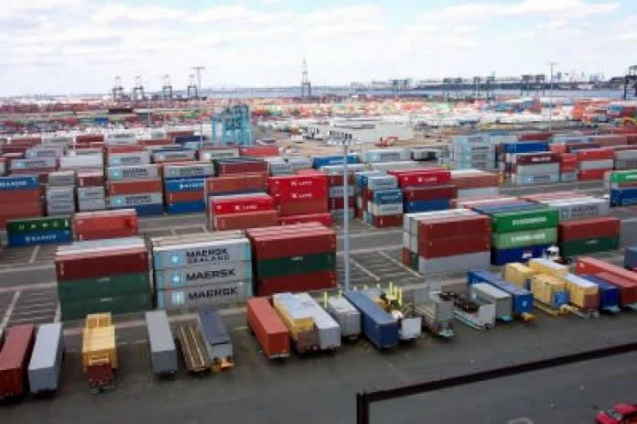An Assistant Commissioner of Customs in charge of the Accra Sector Command and Chairman of the Implementation Team of the Integrated Customs Management System (ICUMS) Emmanuel Ohene, has revealed that the initial challenges during the rollout of the Integrated Customs Management System (ICUMS) have been reduced by about 70%, eight months since the introduction of the system.
Mr. Ohene said the initial delay that users of the system faced when processing bill of entries for example is a thing of the past.
He said once an importer through his or her agent submits documents in ICUMS that are not subject to any queries, it does not take up to two hours to process a pre-manifest declaration.
“One of the very attractive modules which is being used by about 70% of the freight forwarders is the pre manifest declaration; it is one of the pillars of trade facilitation agreement from the World Trade Organization. It allows you to process paperwork and make payment prior to the arrival of the vessel,” he explained.
The Assistant Commissioner of Customs, in charge of the Accra Collection also attributed the success of ICUMS to the decentralization of clearance processes from the Customs Technical Services Bureau.
He said now, outstations across the various frontiers of the country can manage some of the various customs regimes including import, export, re export, transit, etc
“In a place like Elubo, where we had a lot of complaints, the decentralization has taken place. Same as Aflao,” he cited.
Mr. Emmanuel Ohene also indicated that the initial problem of manifest matching that bedeviled the system is currently non-existent.
He said ICUMS broke down the previous Pre Arrival Assessment Reporting System (PAARS) and ensured that classification and valuation were done through the ICUMS with a Customs supervisor who quickly verifies documents and generates a tax bill.
This, according to him has “eliminated the multiple routes one had to go through prior to the payment of duties” which is a hallmark of the ICUMS system.
The Chairman of the ICUMS Implementation team, also disclosed that since the advent of ICUMS, 141 customs offices across the country that hitherto were operating manually have been brought on-board the ICUMS automated systems and by end of first quarter of 2021 all customs offices would be on-boarded.
While admitting to some genuine complaints of the trading public regarding the new system, the Assistant Commissioner of Customs insisted that ICUMS has been significantly progressive with regards to trade facilitation in Ghana.
He encouraged users of the system to be optimistically patient as the ICUMS team plans to soon introduce the second phase of the system which would see the few challenges fixed as well as many added innovations.
Latest Stories
-
We’re not selling ECG – Energy Minister
5 minutes -
ECG sees significant growth in revenue generation – John Jinapor
18 minutes -
Ghana Para Athletics launches nationwide talent hunt in Kumasi
20 minutes -
Government agencies join forces to implement School Farms Presidential initiative
23 minutes -
Kinshasa gears up to host inaugural World Music and Tourism Festival
38 minutes -
BoG Governor urges businesses to re-invest locally to sustain forex stability
49 minutes -
Suspended Chief Justice Torkornoo’s $10 Million ECOWAS Showdown Tests Ghana’s Democratic Pillars
52 minutes -
Education Minister’s statement doesn’t affect upcoming licensure exams – NTC tells candidates
52 minutes -
NDC’s Yakubu Abanga pledges to resign if found guilty of galamsey involvement
1 hour -
CRC receives over 600 constitutional reform proposals
1 hour -
DriveEVGh launches EV Showroom to accelerate Ghana’s green transport revolution
1 hour -
Rethinking Everyday Choices: Cutting Back on Processed Meats, Sugary Drinks, Trans Fats – and Reading Food Labels
1 hour -
Time to correct History: Rename KIA after Kwame Nkrumah – Vitus Azeem
1 hour -
Roasted Corn-on-the-Cob in Season
1 hour -
GBA elections in limbo over stand-off with NSA
1 hour

